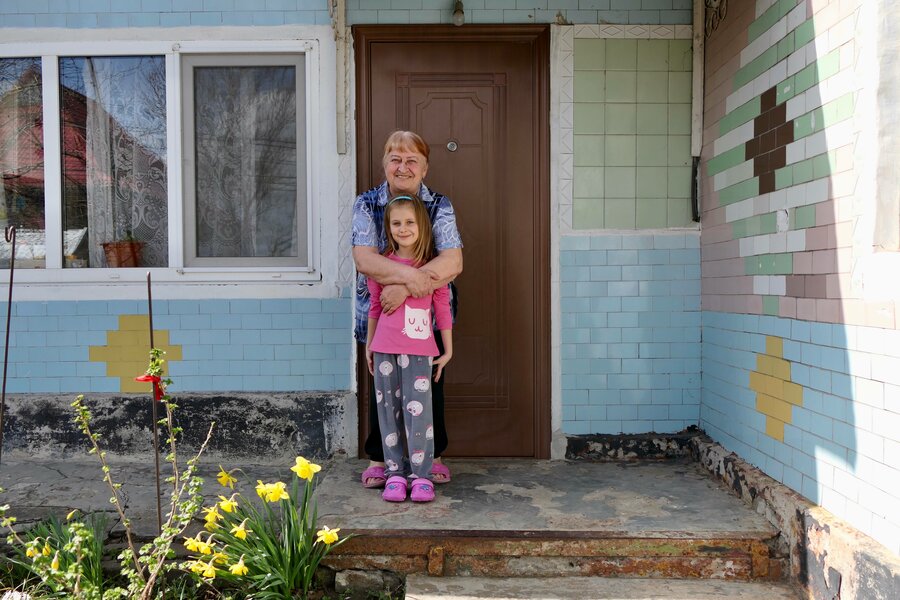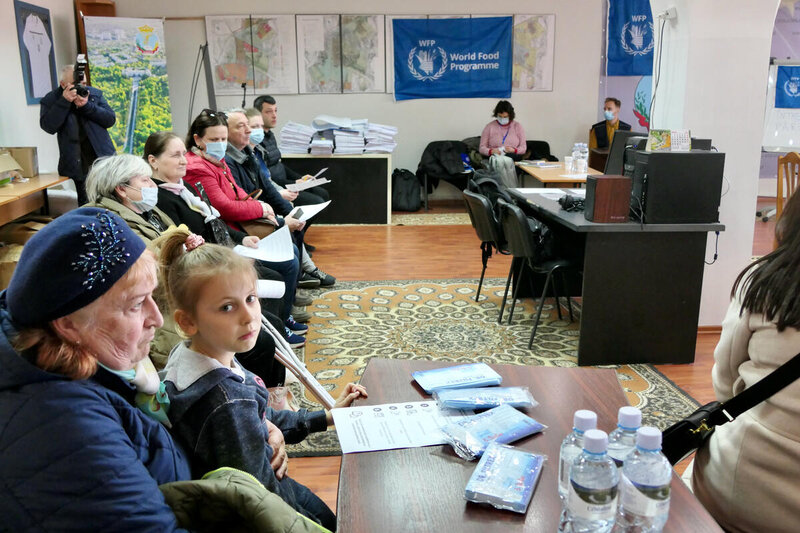Hello, goodbye: Host families in Moldova forge bonds with refugees escaping war in Ukraine

“I need this money to pay for the gas to heat the house and for cooking and hot water,” says Ludmila. “The gas tariffs soared this year. Yesterday, I had to switch off the heating and sleep in the cold.”
Ludmila is among families in Moldova receiving cash grants from the World Food Programme (WFP), for taking in refugees from Ukraine.
In January, before the conflict, gas prices were already up by 17.5 percent.
Moldova is often cited as one of the poorest countries in Europe, struggling to gain economic and trade footholds since the collapse of the Soviet Union. But tens of thousands of Moldovan families are welcoming refugees from Ukraine into their homes.
The morning that I meet her, Ludmila explains she woke up “before the birds” to prepare packed lunches of cottage cheese parcels and meatballs for the Ukrainian family of four who’ve been staying with her.
After a tearful goodbye, they are now on their way to Poland, she tells me. Ludmila seems exhausted but content.
“We became a new family, helping each other out here and there and sharing recipes,” she says.
During the month-long stay, Ludmila received big bills for the household's gas, water and electricity consumption. With winter lingering, turning down the heating was not an option.
WFP set up a cash operation in Moldova in just two weeks. It gives money to Moldovan households like Ludmila's when they host at least two refugees from Ukraine for over a week. They receive a one-off payment of 3,500 Moldovan Leu, around US$190, to assist with the additional expenses incurred with hosting new household members.
In conditions where markets and financial systems are functioning, cash grants are efficient way to help people meet their range of essential needs, including food.

When budgets are tight, families often sacrifice buying food in order to pay for other costs, such as heating or healthcare. With extra cash Moldovan households can decide which needs are essential and when and how they want to address them.
Much of the money that WFP is transferring to households comes from Norway, which has donated almost US$3 million to the operation in Moldova. When this cash is spent it goes directly injected into the local economy, providing another positive impact.
WPF aims to provide 30,000 families with cash – but that is less than a third of the 100,000 it believes need assistance.
Seven-year-old Eva travelled for two days by bus from Odesa, with her mother and brother, when fighting escalated close to home. After living alone for 40 years, their new host, Vera, says she is more than happy to open up her home to the new family. There, in a suburb of Chisinau, Moldova's capital, Vera has been giving Eva gardening lessons. Judging by the giggling in class, they are getting along rather well.
“I taught Eva to grow tomatoes, so she has a project, but I hope she never gets to taste them,” says Vera. “It would be a shame if she's still here when they are ready for harvest. She should be at home.”
As with Ludmila, the cash she receives from WFP is helpful when paying off her utility bills. “I can survive when it's 15 degrees but it's not healthy for the kids, so I keep the heating on even though it's so expensive,” says Vera. She's also using it to pay for the internet so that Eva can continue her classes online in Odesa.
More than 370,000 people have made it across Ukraine into Moldova so far. That number is steadily increasing each day, and United Nations agencies are bracing for a further wave should there be a spike in the conflict in southern Ukraine.
With each day of conflict that passes, prices throughout the region incrementally trigger global increases. Oil and gas costs have soared throughout Europe, and everyday food prices are also increasing in the Levant, particularly where Ukraine's corn and wheat products are staples. Associated costs, such as for the aluminium from the region used for food tins, may also rise in price worldwide.
There are deep concerns for the impact of these increases on global food security.
In the suburbs of Chisinau and throughout Moldova, tens of thousands of women like Ludmila and Vera are already taking on the financial burden of the conflict in their own homes.
